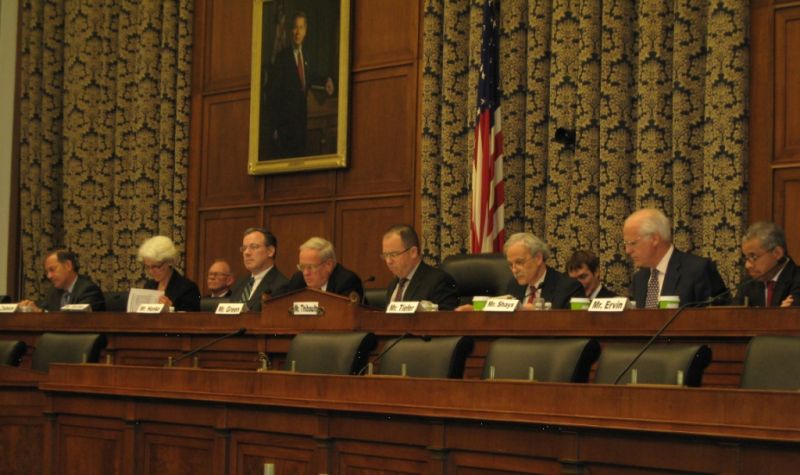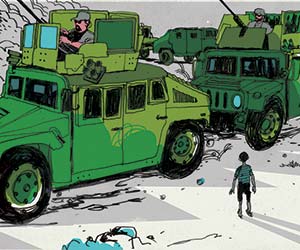
Photo: Wartime Contracting Commission
The Commission on Wartime Contracting delivered its interim report (PDF) Wednesday to members of the House Oversight and Government Reform Committee. Created in July 2007, the Commission is an independent, bipartisan panel modeled after the “Truman Committee,” which attacked government waste in the years after World War II, saving the federal government some $178 billion. Given that we’ve sunk more than $830 billion in the wars in Iraq and Afghanistan since 2001, much of it now in the pockets of private contractors, the very fact that the Commission exists is a step in the right direction.
Not surprisingly, co-chairs Michael Thibault and Christopher Shays report serious breaches in contract management and oversight. Such problems, they say, “directly involve our nation’s ability to achieve policy objectives and provide proper support and protection for our warfighters and civilian employees engaged in contingency operations.” The fact is that contractors now outnumber US troops in both theaters of operation. Combined there are about 240,000 Pentagon contractors in Iraq and Afghanistan; Agencies like State and USAID have their own. Eighty percent of these are foreign nationals working for bewildering chains of subcontracts that routinely escape notice by federal contract management officers.
The Commission’s final report is due to be released in August 2010, but here are some preliminary findings as reported to lawmakers on Wednesday:
- The drawdown of US forces in Iraq risks incurring enormous waste, which could range from completion of work that may not need to be done, to poorly controlled handling and disposition of US government property.
- There is a critical shortage of qualified contract-management personnel in theater and those that are there are stretched too thin. In particular, the process for designating and training contracting officer’s representatives to check contractor performance in theater is broken.
- There is a need for greater accountability in the use of subcontractors. Subcontracts account for more than 70 percent of the work, but government has very little visibility into their operations.
- The effectiveness of contractor support of expanded US operations in Afghanistan is compromised by the failure to extract and apply lessons learned from Iraq, particularly those about poor coordination among agencies.
- The Department of Defense should accelerate its plans to establish a contracting command in Afghanistan. The troop surge in Afghanistan demands that contracting oversight be conducted in-country rather than from Iraq, which is currently the case.
- The Department of Defense should take immediate steps to ensure that contractors providing security for our operating bases are well trained and equipped to provide strong force protection to our military.









